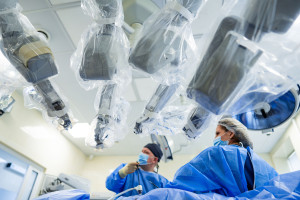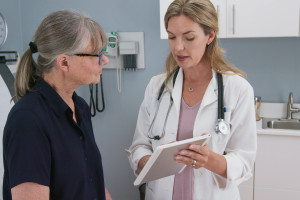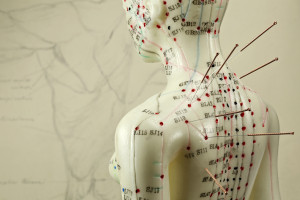Urologists and gynecologists agree: specialization in urogynecology is needed. Deputy minister: I removed such a skill

- We need changes in the care of patients with urogynecological problems - says Prof. Ewa Barcz, head of the Department of Gynecology and Obstetrics at the UKSW Medical College
- It is time to create a new subspecialty: urogynecology - says Prof. Ewa Wender-Ożegowska, national consultant in the field of obstetrics and gynecology
- According to the national consultant, allowing some doctors to undergo training in urogynaecology would bring benefits to patients, including by reducing the number of unsuccessful surgical procedures.
- As Professor Tomasz Drewa, President of the Polish Urological Society, reminds, a regulation has been created that lists urogynecology as a new skill
- However, PTU has no substantive influence on the content of the specialization program for such a skill - emphasizes the president of PTU
- The skill was withdrawn from the regulation. - We rather need to create a specialization that combines the skills of urologists and gynecologists to some extent - this is how Deputy Minister of Health Urszula Demkow justified this move
- Experts discussed the possible introduction of a new subspecialization during the meeting of the Senate Health Committee
Urogynecology is a new medical discipline that encompasses knowledge from the borderline of three fields:
- urology - in relation to the lower urinary tract,
- gynecology - in relation to disorders related to pathologies and damage to the reproductive organs of the pelvic floor,
- proctology - in the scope concerning damage to the final section of the gastrointestinal tract.
Prof. Ewa Wender-Ożegowska , national consultant in the field of obstetrics and gynecology, emphasizes that urogynecological problems affect women more and more often - due to the ageing of society.
The Central Statistical Office estimates that in 2030, approximately 45% of women will be over 50, and medical data show that at least 40% of this population struggle with urogynecological problems. - This is mainly urinary incontinence (UI), but also many problems related to the prolapse and prolapse (hernia - ed.) of the pelvic floor organs, e.g. the uterus, and sexual dysfunctions - explains the consultant.
As Prof. Ewa Barcz , Head of the Department of Gynecology and Obstetrics, Collegium Medicum UKSW, from Międzyleski Specialist Hospital in Warsaw, says, we need a systemic change in the care of patients with urogynecological problems. Today, such patients wander in the system, looking for a doctor who will take care of their surgical treatment.
This is happening, among other things, because there is a systemic problem in postgraduate education of doctors in the field of knowledge combining gynecology, urology and proctology. - We do not have enough opportunities and time to educate a gynecologist or urologist fully competent to comprehensively deal with pelvic floor diseases - believes Prof. Ewa Barcz.
He points out: - That is why we treat ineffectively. We also generate many complications, which results from performing serious urogynecological procedures in centers that perform only a few of them, e.g. 2-3 such procedures per year.
A specialist is not a jack of all tradesIn the Czech Republic, there has been an independent specialization in urogynaecology for over 20 years. In Great Britain and Italy, urogynaecology is a subspecialty, in Germany it is a formal part of the broad specialization of gynaecology and obstetrics, certified by a scientific society. In the USA, there is a subspecialty in pelvic floor surgery for gynaecologists and obstetricians.
In the country, it is difficult for patients to find the right doctor who can help them with their specific, advanced urogynecological problem.
According to Prof. Ewa Wender-Ożegowska, the number of issues in the field of urogynecology covered during specialist training in gynecology and obstetrics is too narrow. - It is possible that some changes in this area will be included in the new specialist program, which will be worked on by the team recently appointed by the director of the CMKP. However, it seems that the time has come to create a new subspecialty: urogynecology - believes the national consultant.
- As to whether it will be a subspecialization for both gynecologists and urologists, the question is open and requires arrangements between these environments - she said.
As she points out, some of the repair surgeries that are part of the gynecology and obstetrics training program, such as posterior vaginal vault surgeries, as well as mesh surgeries, are procedures that require special skills. - Up to a certain stage, a gynecologist specialist knows what to do, within their competence. However, there are therapeutic problems that require sophisticated knowledge and cooperation with a urologist - explains Prof. Ewa Wender-Ożegowska.
According to the national consultant, introducing changes to the specialisation programme in gynaecology and obstetrics, but also enabling some doctors to continue their education in urogynaecology, would benefit patients by limiting the number and severity of chronic pathologies and reducing the number of unsuccessful surgical procedures.
"We have been talking about creating a skill or sub-specialization for years"Prof. Tomasz Drewa, president of the Polish Urological Society, also talks about the joint creation of a new specialization with gynecologists.
In his opinion, the urology specialization program does not require many changes. But this does not mean that a urologist can cure every pathology related to pelvic floor disorders.
- There are indeed specific medical cases that must be dealt with by doctors trained in both urology, but also in gynecology and lower gastrointestinal surgery due to the wide scope of the medical problem - he admits.
The scope of specialist training for a urologist includes, for example, operations on the bladder, diverticula, urethra, surgical treatment of urinary incontinence. The specialization program also covers, among others, issues of gynecological urology of the pelvic organs, post-pregnancy and post-partum complications, endometriosis.
As the president of PTU says, urologists have been talking with gynecologists-obstetricians for years about the need to create skills or subspecializations in the field of urogynecology. We have also met with proctologists and urogynecologists who work in Poland and have European titles - says Prof. Tomasz Drewa.
As he recalled, a regulation was created that lists urogynecology as a new skill that doctors can acquire. - The problem is that the certification of this skill is to be carried out by a scientific society. This makes no sense, because at least two societies should speak out on this matter, i.e. gynecological and urological - emphasizes the president of the PTU.
PTU had no substantive influence on indicating the content for such a skill, because the regulation did not provide such a possibility. - We could not even create the basis for preparing a curriculum for educating and certifying doctors who would acquire such a skill - says Prof. Tomasz Drewa.
This is because the authority to certify and introduce skills has been granted to state medical institutes. - We have discussed this issue many times, looking at the problem from the perspective of the PTU main board and the national consultant in the field of urology. As urologists, we do not see any possibility for the MSWiA institute or the oncology institute to define the substantive basis for issues related to urogynecology, because there are no specialists competent in this particular field - assessed the president of PTU.
Skill removed from regulation. Deputy minister explains whyProf. Urszula Demkow, who was present at the meeting of the team of the Deputy Minister of Health, explained that the ministerial regulation on skills is in force, but it no longer mentions the skill in the field of urogynaecology.
- The urogynecology skill has been removed, I personally removed it from the regulation - she admitted, surprising urologists a bit.
As she explained, it is indeed difficult to find specialists directly in the institutes who would write a skills program in the field of urogynecology that would combine issues from the three specializations.
According to Urszula Demkow, at this stage of the discussion the Ministry of Health is considering whether urogynecology should become a specialization (subspecialization) or a certified skill.
- The skill itself would limit the possibility of helping patients, because the range of surgical procedures in urogynecology is quite wide. We need to create a specialization that combines the skills of urologists and gynecologists to some extent - she said.
- We are well on our way to such a specialization that could be practiced by both urologists and gynecologists - she added.
As she emphasized, there are centers in the country whose experience can be used to create a specialization in urogynecology. - This could be a good start to creating a specialization program and establishing training centers - she said.
According to the deputy minister, interested specialist communities should jointly work out the details of the urogynecology specialization program.
Urszula Demkow also supported the idea of patient communities to involve midwives much more extensively than before in the care of women with urogynecological problems.
She admitted that due to the decreasing number of births, midwives are starting to lose their jobs. - The experience and knowledge of midwives, after some training and preparation, can be put to good use by inviting them to interdisciplinary teams caring for women who are no longer giving birth but who are affected by urogynaecological problems - said the deputy minister.
The conclusions from the discussion were sent to the Ministry of Health. The chairwoman of the committee , Beata Małecka-Libera, announced that the committee would return to the subject when planning its work.
Copyrighted material - reprint rules are specified in the regulations .
rynekzdrowia














